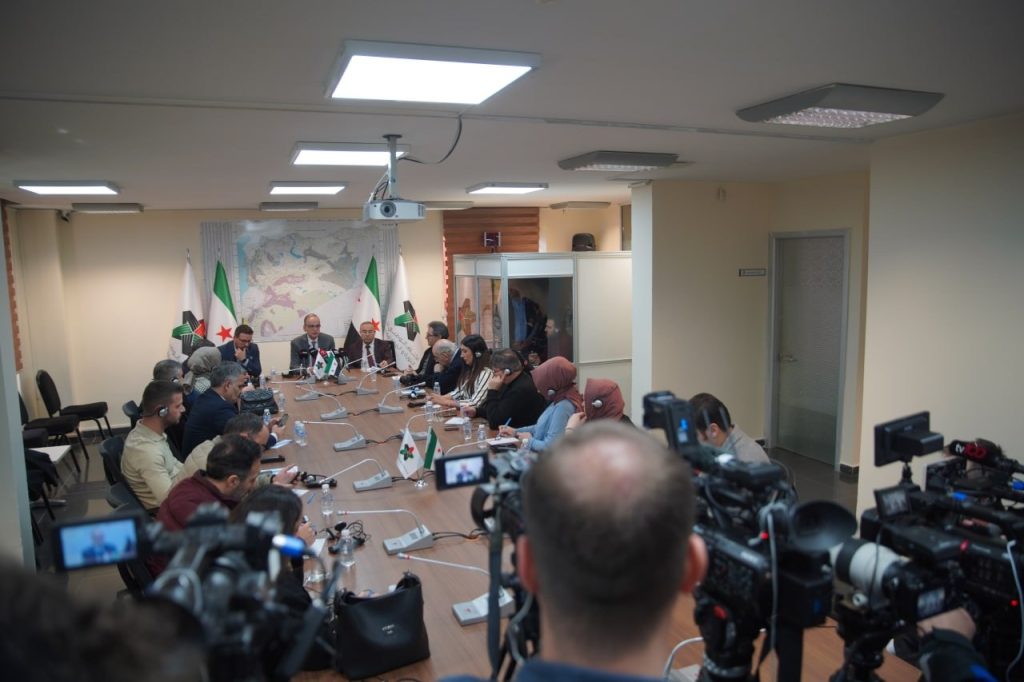President of the Syrian Opposition Coalition (SOC), Hadi Al-Bahra, conducted a press interview with Turkish media to discuss the latest developments in Syria. The interview included Vice Presidents Abdel Majeed Barakat and Abdel Hakim Bashar, along with several members of the political committee.
Al-Bahra highlighted the underlying causes of the prolonged suffering of the Syrian people, particularly in relation to displacement and seeking asylum abroad. He emphasized that Syrians were compelled to stay in the host countries due to the extreme violence perpetrated by the Assad regime and its sectarian militias, involving killing, bombing, the use of chemical weapons, mass arrests, disappearances, and torture.
Despite positive interactions and substantial efforts by the Syrian revolution and opposition forces towards a political solution since 2014, Al-Bahra underscored the Assad regime’s steadfast refusal to accept any political resolution. He pointed to the regime’s use of extreme violence, coupled with international inefficacy in dealing with this obstinate stance, as factors prolonging the Syrian people’s suffering.
Discussing the Constitutional Committee, Al-Bahra noted its interruption after eight sessions due to the regime’s refusal to continue without meeting Russia’s demands, a request firmly rejected. He stressed that no country has the right to interfere in drafting the Syrian constitution.
Addressing the decision to reduce humanitarian aid in Syria, Al-Bahra warned of a potential shift from a humanitarian crisis to a full-fledged disaster, given increased needs post the February 6 earthquake, coupled with soaring inflation and unemployment nationwide. He urged the UN, friendly nations, and influential stakeholders in Syria to elevate humanitarian aid levels to prevent widespread famine, particularly in northern Syria.
Calling for the stabilization of the cross-border aid mechanism by the UN Security Council, Al-Bahra emphasized the non-politicization of humanitarian aid and prevention of access hurdles imposed by the corrupt Assad regime. He reiterated that the root causes of humanitarian crises are political, requiring a serious political process to implement Security Council Resolutions 2118 and 2254, reuniting Syrian territories and returning power to the people.
Al-Bahra outlined the SOC’s commitment to improving living conditions in northern Syria, promoting voluntary and dignified returns for Syrian refugees through judicial reform, security and stability measures, and the restructuring of the security apparatus. He discussed the ongoing project to defend liberated areas, part of the Syrian National Army’s formation, and stressed the Turkish role in enforcing Astana process ceasefire agreements to prevent civilian targeting.
Additionally, Al-Bahra shared details of the SOC’s visit to industrial zones in Al-Bab, Azaz, and Al-Raie in rural Aleppo, where priorities for investment promotion were established. This included matters related to transit trade through Türkiye, with preparations underway for an upcoming investment conference in northern Syria by the interim government.

(Source: SOC’s Media Department)













